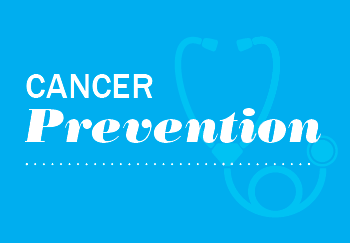 Polycystic ovary syndrome (PCOS) is one of the most common hormonal disorders affecting women of childbearing age. Worldwide, about 8 percent of women develop this condition, according to Human Reproduction Update. PCOS affects a woman’s reproductive hormones and may lead to certain problems in reproductive organs, including the uterus and ovaries.
Polycystic ovary syndrome (PCOS) is one of the most common hormonal disorders affecting women of childbearing age. Worldwide, about 8 percent of women develop this condition, according to Human Reproduction Update. PCOS affects a woman’s reproductive hormones and may lead to certain problems in reproductive organs, including the uterus and ovaries.
Research ties PCOS to other health problems, like ovarian cysts and infertility. But can PCOS lead to cancer? The short answer is yes, but certain kinds of cancer are more likely than others. And it’s possible to reduce your risk by getting treatment for PCOS and living a healthier lifestyle.
PCOS Basics
PCOS affects women of all races who are old enough to have children. In most cases, the condition is diagnosed when you have trouble getting pregnant. While the exact cause of PCOS is unknown, doctors believe it results from high levels of insulin and androgens in your body.
Insulin helps your body process the food you eat into energy. Androgens are also known as “male hormones,” but every woman’s body produces small quantities of them. High levels of both of these hormones lead to a variety of symptoms, including:
- Irregular periods
- Hair changes, including excessive growth and thinning hair
- Skin discoloration
- Acne
- Weight gain
PCOS also causes your body to make more estrogen, one of the main female hormones.
Can PCOS Lead to Cancer?
The American Cancer Society links untreated PCOS to the development of endometrial cancer. This type of cancer occurs when cells making up the internal lining of your uterus grow out of control. It’s thought that high levels of estrogen, lower progesterone, and not having regular periods in women living with PCOS ultimately causes this type of cancer. But even though your risk for endometrial cancer is higher, this type of cancer generally occurs rarely — the ACS states your lifetime risk of developing endometrial cancer is less than 1.3 percent.
The connection between PCOS and other reproductive system cancers, like breast and ovarian cancer, is more uncertain. Research published in the journal Cancer Causes and Control indicates that higher levels of androgens and insulin may increase your risk of breast cancer. However, other studies suggest no relationship between the two. Likewise, while some research indicates a possible relationship between PCOS and ovarian cancer, the Human Reproduction Update suggests that you’re no more likely to develop ovarian cancer than someone without PCOS.
PCOS Treatment
Since the data is unclear, it’s important to keep yourself as healthy as possible if you have PCOS. Your doctor may recommend you make certain lifestyle changes, such as eating a low-calorie diet and exercising more.
Additionally, certain medications, like combination birth control pills or diabetes medication may help regulate your hormone levels and provide protection against endometrial cancer. Lifestyle changes, like weight loss, may even make these medications more effective for treating your PCOS.
Talk to Your Provider
Find a doctor that will listen to and understand your health concerns.
Before your appointment with your physician, it can be helpful to prepare a list of questions about your condition to help direct the conversation. Common questions may include:
- Does my personal and family medical history put me at higher risk for PCOS?
- If I have PCOS, how can I determine my risk of developing cancer?
- What is the best treatment approach for my PCOS?
- How can I manage my PCOS if I have other medical conditions?
More research is needed to determine just how strong the link is between PCOS and certain cancers. While it may not be possible to determine your exact chances of developing cancer, you can take steps to reduce your cancer risk by adopting a healthier lifestyle and following your doctor’s treatment plan.
